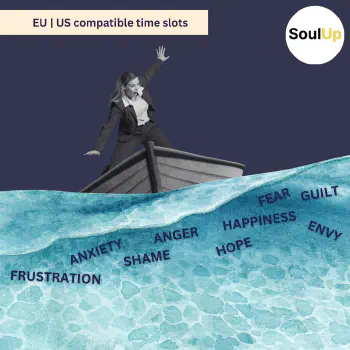Group Type: Dialectical Behavior Therapy (DBT) Skills Group
Goals of the Group:
- Equip participants with DBT skills to manage emotions, improve relationships, and enhance distress tolerance.
- Cultivate mindfulness to navigate challenges associated with BPD in a structured, supportive environment.
- Empower individuals to identify and understand emotions, develop healthier coping mechanisms, and communicate effectively.
Who Is The Group For?
- Individuals diagnosed with or struggling with symptoms of Borderline Personality Disorder (BPD).
- Those experiencing emotional dysregulation, unstable relationships, impulsivity, identity disturbances, or self-harming behaviors.
- People seeking a safe, supportive space to learn DBT skills and improve their quality of life.
Discussion Topics:
- Core DBT modules: Mindfulness, Distress Tolerance, Emotion Regulation, and Interpersonal Effectiveness.
- Understanding BPD and its bio-social theory.
- Practical applications of DBT skills in daily life.
What Will We Talk About?
- Mindfulness: Observing, describing, and participating in the present moment.
- Distress Tolerance: Crisis survival strategies and radical acceptance.
- Emotion Regulation: Identifying, labeling, and managing emotions effectively.
- Interpersonal Effectiveness: Assertiveness, communication, and relationship maintenance.
Glimpse of the Session:
Sessions 1-2: Foundations & Core Concepts
- Session 1: Introduction & Core Mindfulness
- Group expectations, BPD overview, and DBT introduction.
- Mindfulness skills: Observing, describing, participating, and non-judgmental awareness.
- Session 2: Chain Analysis & Behavior Patterns
- Understanding behavior triggers through Chain Analysis and Missing Link Analysis.
- Case study discussions and practical exercises.
Sessions 3-4: Interpersonal Effectiveness
- Session 3: Effective Communication & Assertiveness
- DEAR MAN technique for assertive communication.
- Role-playing for conflict resolution.
- Session 4: Relationship Maintenance & Balancing Priorities
- GIVE skills for maintaining relationships.
- FAST skills for setting emotional boundaries.
Sessions 5-6: Emotion Regulation
- Session 5: Understanding & Managing Emotions
- Recognizing emotional patterns and strategies for change.
- Techniques to increase positive emotions.
- Session 6: Strengthening Emotional Resilience
- ABC PLEASE skills for reducing vulnerability.
- Developing self-care plans and healthy habits.
Sessions 7-8: Distress Tolerance & Acceptance
- Session 7: Crisis Survival & Distress Tolerance
- TIPP techniques for immediate crisis management.
- Self-soothing and distraction strategies.
- Session 8: Radical Acceptance & Closure
- Practicing acceptance and mindfulness.
- Group reflection and personal takeaways.
Note: Session topics, order, and details may be adjusted based on group needs and facilitator guidance.
Facilitator Bio:
Kavya is a Trauma-Informed and Attachment-Informed Clinical Psychologist with over four years of experience, holding an MPhil in Clinical Psychology from NIMHANS. She works with individuals and couples, including adolescents and adults, offering services both online and offline. Her practice encompasses psychological assessments and a range of psychotherapeutic interventions.
Kavya provides evidence-based therapies, including:
- Dialectical Behavioural Therapy (DBT)
- Cognitive Behavioural Therapy (CBT) for mood and anxiety disorders
- CBT for perinatal mood and anxiety disorders (Beck Institute)
- Trauma-informed therapy, including EMDR and somatic techniques based on polyvagal theory
- Acceptance and Commitment Therapy (ACT)
- Relational and Psychodynamic Psychotherapy
As part of this group, Kavya helps participants build skills in emotional regulation, mindfulness, and interpersonal effectiveness using DBT. Her structured approach fosters a supportive environment where group members learn practical tools to manage intense emotions and develop healthier relationships.


